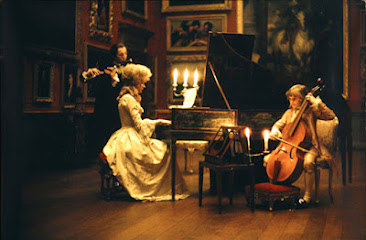On February 16, 1816, four months before his death, followers and supporters of Giovanni Paisiello decided to attend the premiere of Rossini's The Barber of Seville with the purpose of creating riots and causing the opera to fail. They were angry with Rossini. More than thirty years ago Paisiello had premiered in St. Petersburg an opera based on Beaumarchais' famous comedy, with great success, the first of all previous adaptations. The work toured Europe with similar acclaim. Its title was: Il Barbiere di Siviglia, ovvero La Precauzione inutile.
So when his supporters saw in Rome the announcement of a work entitled Almaviva o sia La inutile precauzione with music by Gioacchino Rossini they had reason to be outraged. They felt that Maestro Rossini had not worn himself out in search of a novel topic but had merely worked comfortably on a tried-and-true work. That's why they were angry. And they got their way, Rossini's premiere turned out to be a failure.
 |
| Giovanni Paisiello (1740 - 1816) |
This was not the case with the following performances. But if Rossini's work is the most performed opera to this day, it is no less true that in its time it had to struggle arduously with Paisiello's work. Despite all the time that had elapsed since its premiere in September 1782, Paisiello's Il Barbiere di Siviglia was more popular than Rossini's work for a significant period of time. Rossini would eventually surpass it, but that would not happen until the middle of the 19th century. Paisiello's opera will disappear from the stage, but not completely from the world music scene.
Cavatina "Saper bramate"
In the first act, the Count of Almaviva sings a serenade to Rosina, introducing himself to her as Lindoro, a poor student. The cavatina, which begins with the words Se il mio nome saper bramate (something like "If my name you long to know"), is one of the surviving arias from Paisiello's opera. Moreover, the piece took on a new air since the insightful Stanley Kubrick included it in the soundtrack of Barry Lindon, in an instrumental version, to accompany the scene shown in the image that heads this article: the Lindon family makes music while the father, disengaged from home, goes around town visiting gambling houses.
The video has been created with scenes from the film.
